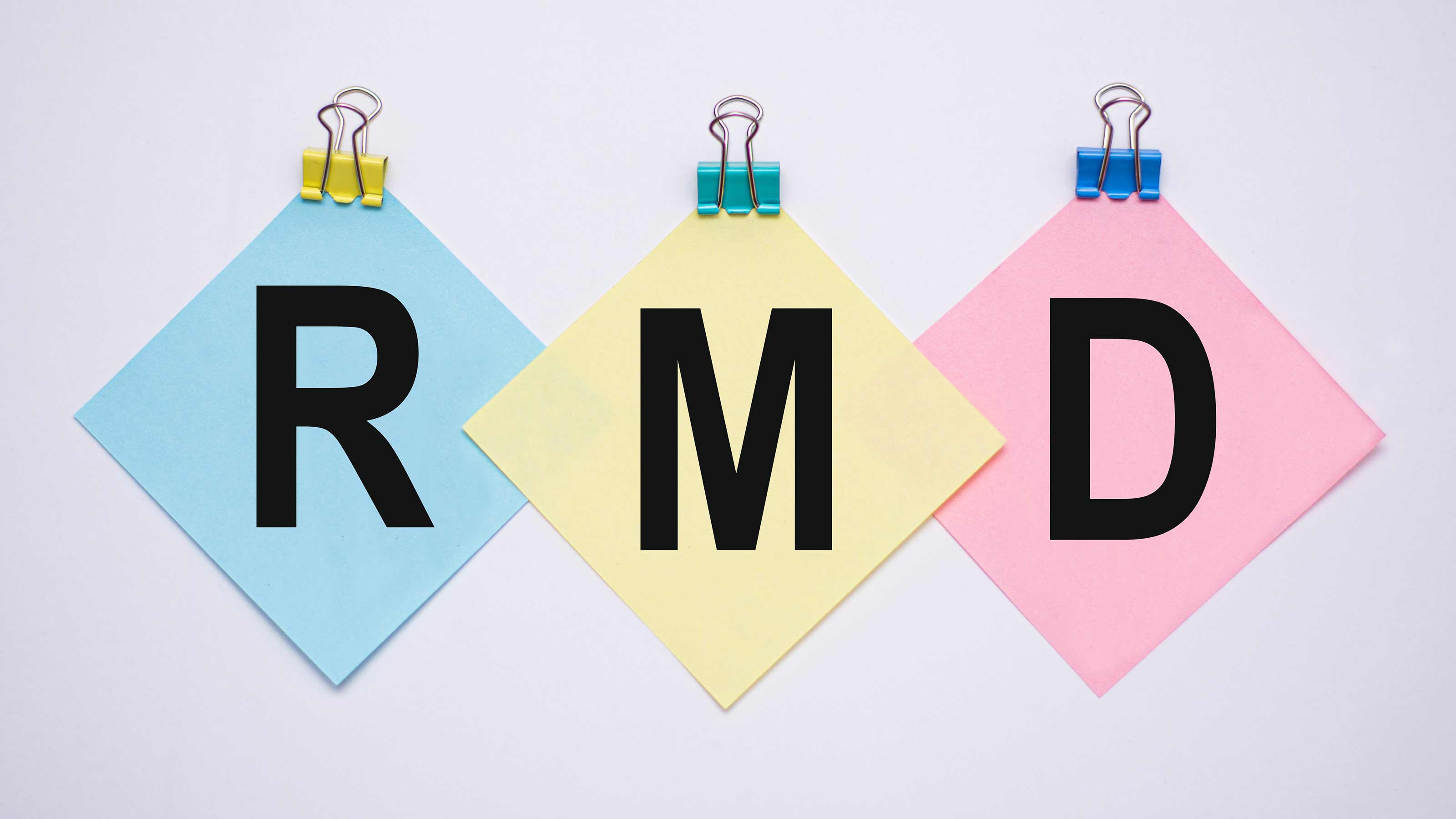Biggest Tax Surprises for Retirees
The taxman keeps working even after you stop. Be prepared.

Profit and prosper with the best of Kiplinger's advice on investing, taxes, retirement, personal finance and much more. Delivered daily. Enter your email in the box and click Sign Me Up.
You are now subscribed
Your newsletter sign-up was successful
Want to add more newsletters?

Delivered daily
Kiplinger Today
Profit and prosper with the best of Kiplinger's advice on investing, taxes, retirement, personal finance and much more delivered daily. Smart money moves start here.

Sent five days a week
Kiplinger A Step Ahead
Get practical help to make better financial decisions in your everyday life, from spending to savings on top deals.

Delivered daily
Kiplinger Closing Bell
Get today's biggest financial and investing headlines delivered to your inbox every day the U.S. stock market is open.

Sent twice a week
Kiplinger Adviser Intel
Financial pros across the country share best practices and fresh tactics to preserve and grow your wealth.

Delivered weekly
Kiplinger Tax Tips
Trim your federal and state tax bills with practical tax-planning and tax-cutting strategies.

Sent twice a week
Kiplinger Retirement Tips
Your twice-a-week guide to planning and enjoying a financially secure and richly rewarding retirement

Sent bimonthly.
Kiplinger Adviser Angle
Insights for advisers, wealth managers and other financial professionals.

Sent twice a week
Kiplinger Investing Weekly
Your twice-a-week roundup of promising stocks, funds, companies and industries you should consider, ones you should avoid, and why.

Sent weekly for six weeks
Kiplinger Invest for Retirement
Your step-by-step six-part series on how to invest for retirement, from devising a successful strategy to exactly which investments to choose.
You’ve saved for years so you can enjoy a comfortable retirement. Now prepare to give some of that money back to Uncle Sam. Taxes could take a big bite out of your savings, leaving you with less money for living expenses. Here’s a look at how some common sources of retirement income are taxed.
Withdrawals from traditional IRAs and 401(k) plans are taxed as ordinary income, which means at your top tax bracket. Withdrawals of earnings from your Roth IRA, on the other hand, are tax-free as long as the Roth has been open for at least five years and you’re 59 1/2 or older. You can withdraw contributions to your Roth IRA tax-free at any time, since you made the original contributions with after-tax money.
When it comes to your taxable accounts, the tax hit will depend on the types of investments you own and how long you’ve owned them. Interest on savings accounts and CDs is taxed as ordinary income. If you’re in the 10% or 15% tax bracket, you’ll pay 0% on capital gains from the sale of stocks, mutual funds and other investments you’ve owned for more than a year. Most others pay 15% on long-term capital gains.
From just $107.88 $24.99 for Kiplinger Personal Finance
Become a smarter, better informed investor. Subscribe from just $107.88 $24.99, plus get up to 4 Special Issues

Sign up for Kiplinger’s Free Newsletters
Profit and prosper with the best of expert advice on investing, taxes, retirement, personal finance and more - straight to your e-mail.
Profit and prosper with the best of expert advice - straight to your e-mail.
Will you receive a private or government pension when you retire? That’s a nice benefit, but it’s also taxable, usually at your ordinary income rate. Some retirees are surprised to discover that a portion of their Social Security benefits may also be taxable. Depending on your other sources of income, up to 85% of your benefits could be taxed.
Finally, don’t ignore the impact of state and local taxes on your retirement income. Moving across state lines—or across the country—could have a big impact on your tax bill. Seven states have no income tax, but that doesn’t always mean that moving to one of them will save you money. Some states with no income taxes make up the difference with high property or sales taxes. And many states that impose income taxes offer generous tax breaks for retirees that could wipe out your tax bill.
For a rundown on how each state taxes its retirees, take a look at our State-by-State Guide to Taxes on Retirees.
Profit and prosper with the best of Kiplinger's advice on investing, taxes, retirement, personal finance and much more. Delivered daily. Enter your email in the box and click Sign Me Up.

Block joined Kiplinger in June 2012 from USA Today, where she was a reporter and personal finance columnist for more than 15 years. Prior to that, she worked for the Akron Beacon-Journal and Dow Jones Newswires. In 1993, she was a Knight-Bagehot fellow in economics and business journalism at the Columbia University Graduate School of Journalism. She has a BA in communications from Bethany College in Bethany, W.Va.
-
 How Much It Costs to Host a Super Bowl Party in 2026
How Much It Costs to Host a Super Bowl Party in 2026Hosting a Super Bowl party in 2026 could cost you. Here's a breakdown of food, drink and entertainment costs — plus ways to save.
-
 3 Reasons to Use a 5-Year CD As You Approach Retirement
3 Reasons to Use a 5-Year CD As You Approach RetirementA five-year CD can help you reach other milestones as you approach retirement.
-
 Your Adult Kids Are Doing Fine. Is It Time To Spend Some of Their Inheritance?
Your Adult Kids Are Doing Fine. Is It Time To Spend Some of Their Inheritance?If your kids are successful, do they need an inheritance? Ask yourself these four questions before passing down another dollar.
-
 What Does Medicare Not Cover? Eight Things You Should Know
What Does Medicare Not Cover? Eight Things You Should KnowMedicare Part A and Part B leave gaps in your healthcare coverage. But Medicare Advantage has problems, too.
-
 15 Reasons You'll Regret an RV in Retirement
15 Reasons You'll Regret an RV in RetirementMaking Your Money Last Here's why you might regret an RV in retirement. RV-savvy retirees talk about the downsides of spending retirement in a motorhome, travel trailer, fifth wheel, or other recreational vehicle.
-
 Estate Planning Checklist: 13 Smart Moves
Estate Planning Checklist: 13 Smart Movesretirement Follow this estate planning checklist for you (and your heirs) to hold on to more of your hard-earned money.
-
 Should You Rent in Retirement?
Should You Rent in Retirement?Making Your Money Last Renting isn't right for all retirees, but it does offer flexibility, and it frees up cash.
-
 6 RMD Changes We Could See This Year
6 RMD Changes We Could See This YearMaking Your Money Last Congress is considering two bills that would make major changes to required minimum distributions. Could your RMDs be affected?
-
 A Kiplinger-ATHENE Poll: Retirees Are Worried About Money
A Kiplinger-ATHENE Poll: Retirees Are Worried About MoneyMaking Your Money Last Concerns about recession, inflation and health care costs weigh on retirees and near retirees.
-
 The Retiree's Guide to Going Back to Work
The Retiree's Guide to Going Back to WorkMaking Your Money Last Inflation and a bear market have prompted some retirees to change course.
-
 Does an Annuity Belong in a 401(k)?
Does an Annuity Belong in a 401(k)?Making Your Money Last Unlike pensions, 401(k)s place the risk of outliving savings squarely on the retiree's shoulders. Find out what's right for you.